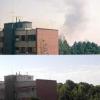
A Photo Report of the Iraqi Forces Invasion to Tehran at the Onset of the Iran-Iraq War
On September 22, 1980, Iraqi forces made an airstrike and ground attack on various parts of Iran and started the imposed war. At about 2:30 pm, Iraqi aircrafts attacked Mehrabad Airport and surrounding areas in Tehran. The number of published photos related to this event is very limited. This photo report provides a brief overview of the photos which have been published and made available online, and offers suggestions for collecting other potential photos.
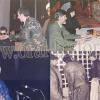
Narrative photography
With Bosnians warriors and injured
During the twenty-fourth anniversary of the Srebrenica Massacre in the Bosnian War, I remembered those days when some of the Bosnian warriors and wounded had been brought to Iran for treatment, and I left the conex box, where used as a small office for Literature and Art of Resistance, and visited them to hear and record their story and memories.
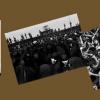
Narrated by photos
An interview that was not done
Yannis Behrakis, a well-known news photographer, who worked for Reuters News Agency, died on Saturday March 2, 2019. He was born in Athens in 1960. He educated in Athens School of Arts and Technology and received a Bachelor Degree from Middlesex University. In 1985-1986, he was a commercial studio photographer, and while he was working in there, he watched the film "Under Fire" and then he became eager to photograph war.
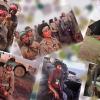
Narrated by images
The little men of those years
The Sacred Defense years were an opportunity for them to get from teen years to youth. They left their adolescence in the towns and villages and grew up as men in the fronts. This photo post is about the teenagers who abandoned their comfortable homes so that their mothers live in safety and comfort. They are brave men for Isfahan Province who took part in the war in the areas of Dar Khowein, Dalpari and Fakkeh.
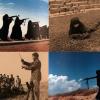
Narrated by photos:
Military Training Course during Sacred Defense
Amirali Javadian has started photography in Art Center since 1978. He went to the sacred defenses fronts in 1981 to photograph. At that time, he was the photographer- correspondent for News Agency of the Islamic Republic of Iran and continued until 1365. Javadian entered into the university after the years of imposed war by Saddam Hussein against the Islamic Republic of Iran, and received his doctoral degree from the collage of Fine Arts in 2004.
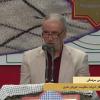
The Hardest Work in the World
The literature of war memoir is a clear indication of any war, therefore, the literature of war is born and can not be made, because in wars the human foot and its ideals are in the midst (among) (In wars, humans and their ideals are involved) and with the sufferings and hopes of the soldiers and nations, these sufferings and hopes come out like a volcano lava from their minds and sit on the blank sheet of paper (white chest of paper).
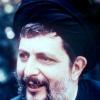
A speech by Imam Moussa al-Sadr
The speech of Imam Moussa al-Sadr was made in assembly of the Ulema and Clergymen on the night of Eid al-Adha in February 1972 in Hosseinia Emadzadeh, Esfahan. In this lecture, the reason of establishment of the Supreme Council for Lebanese Shiites has been expressed.
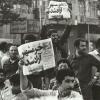
Operation Beit al-Moqaddas and Liberation of Khorramshahr
After Operation Fat’h al-Mobin, we traveled to Kermanshah and visited Sar-e-Pol-e-Zahab before heading to Ilam. During Operation Beit al-Moqaddas, the 27th Brigade was still receiving support from the West. We maintained contact with individuals who had previously worked in Area 7 and were now leading the brigade. It was through these connections that I learned about Operation Beit al-Moqaddas.
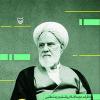 Reza in Revolution
Reza in Revolution
Memoirs of Hujjat al-Islam Reza Motalebi
Hujjat al-Islam Reza Motalebi is a cleric from Isfahan. Before the revolution, he was the imam of the Fallah Mosque – which was later renamed Abuzar Mosque. By his presence and efforts, Abuzar Mosque soon became a base for supporters of the Imam and the revolution. After the victory of the revolution, he played a role in uniting forces and maintaining political vitality in southwest Tehran.

The Necessity of Receiving Feedback in Oral History
Whenever we engage in a task, we naturally seek ways to evaluate our performance — to correct shortcomings and enhance strengths. Such refinement is only possible through the feedback we receive from others. Consider, for instance, a basketball player whose shots are consistently accurate; should he begin shooting blindfolded, his success rate would rapidly decline, as he would be deprived of essential feedback from each attempt.
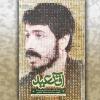 Book Review
Book Review
Sir Saeed
The book “Sir Saeed” is a documentary [narrative] of the life of martyr Seyyed Mohammad Saeed Jafari, written by Mohammad Mehdi Hemmati and published by Rahiyar Publications. In March 2024, this book was recognized as one of the selected documentary biographies in the 21st edition of the Sacred Defense Book of the Year Award. The following text is a review on the mentioned book.




